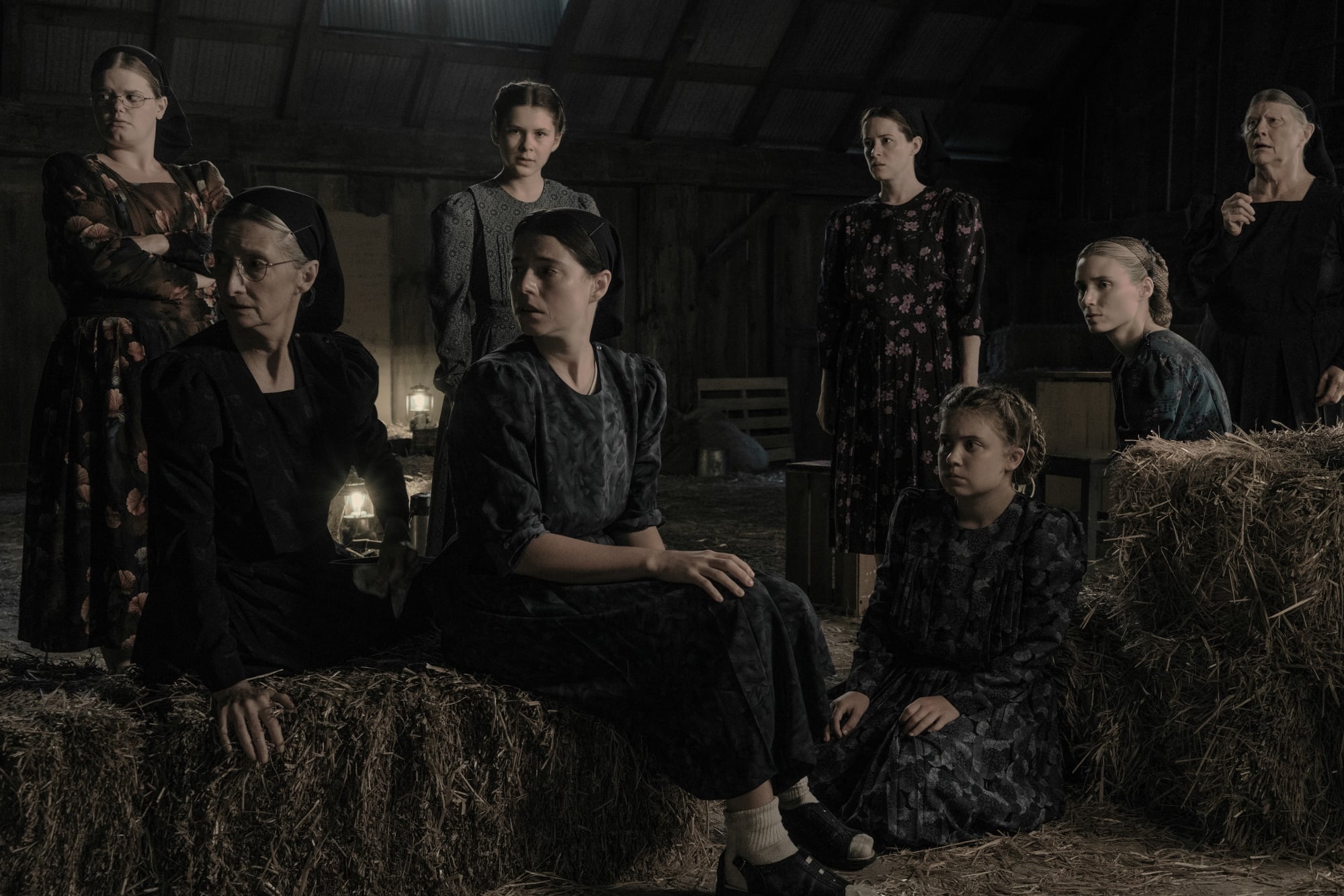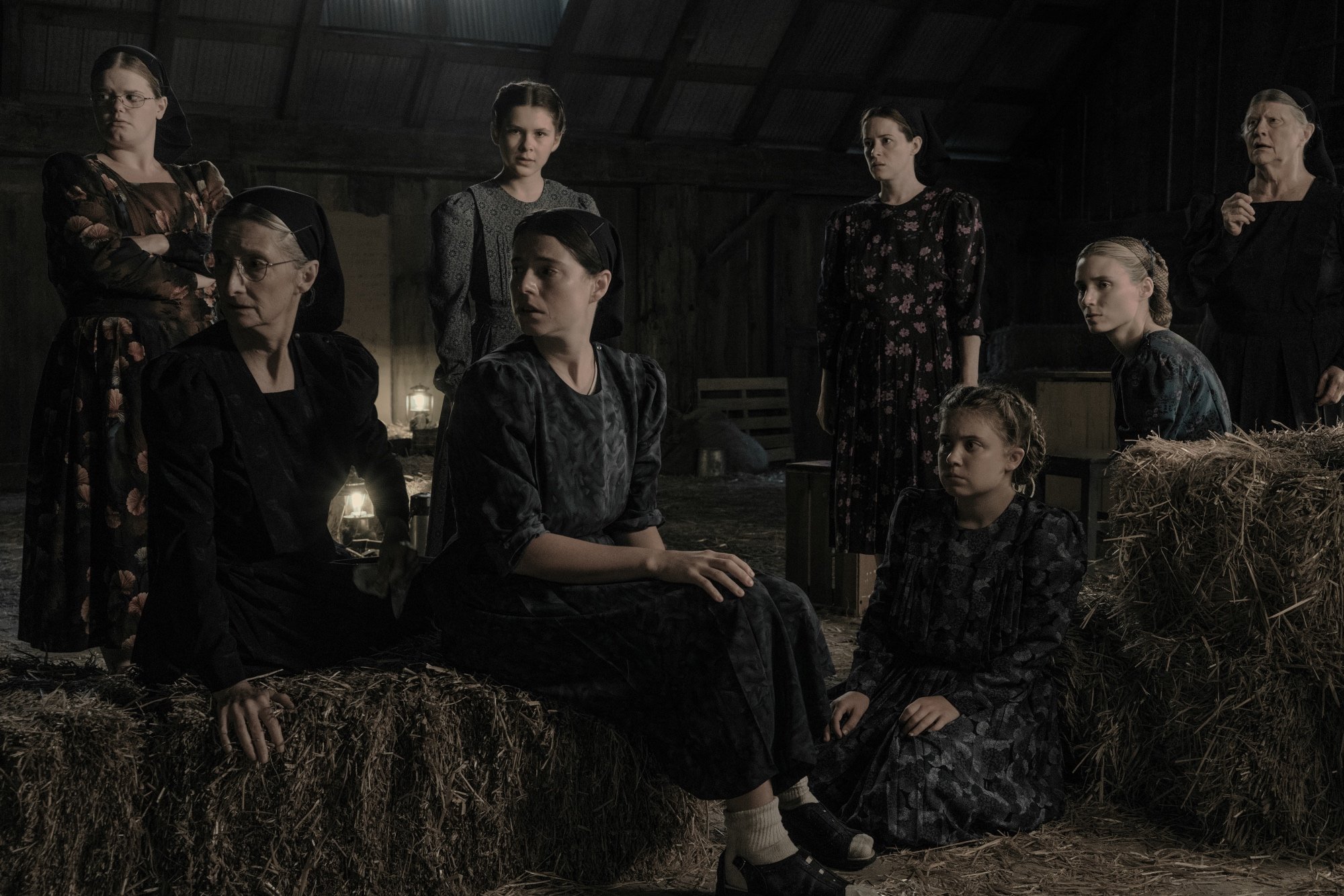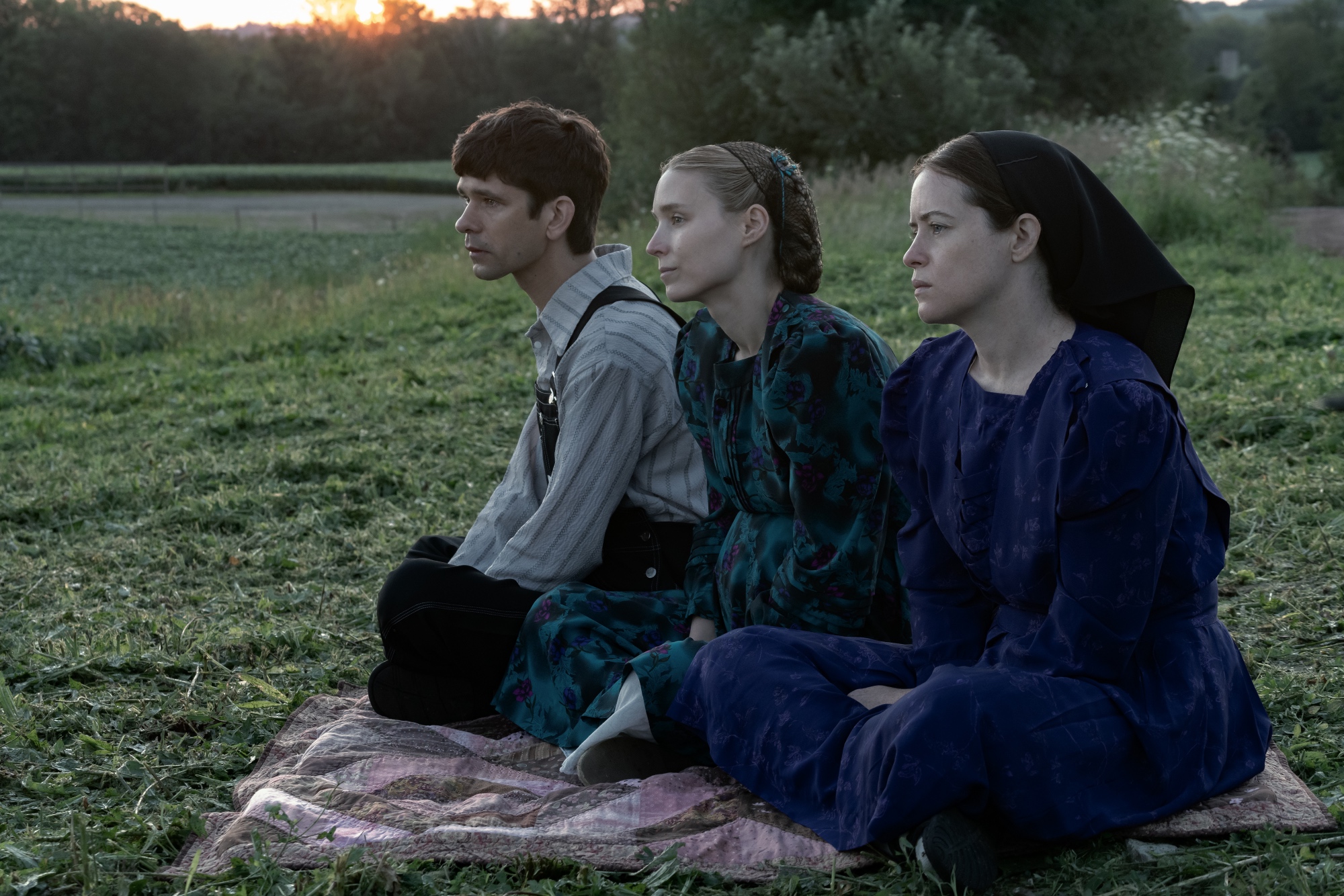
‘Women Talking’ Movie Review: Sarah Polley’s Soul-Stirring Acting Ensemble
Writer/director Sarah Polley makes a grand return to feature filmmaking since 2012’s Stories We Tell with Women Talking. She combines stellar writing and an acting ensemble to die for to craft one of the most heavily engaging movies of the year. Women Talking is a sharp piece of social commentary that stays true to its title with dialogue in abundance. Nevertheless, it feels no less personal as a result.

‘Women Talking’ finds women debating a complicated decision

Set in 2010, a group of men in an isolated religious community sneaks into the women’s bedrooms to rape them. The women want justice, but the powers of authority within their small society belittle the horrible sexual violence exacted upon them. Therefore, the women agree to come together to figure out a solution.
Unable to read or write, the women bring August (Ben Whishaw) in as the only man present to take notes of their conversations. They come up with three options—do nothing and continue living life as normal, stay and fight the men, or leave the only world they know and never look back. However, they realize further into the conversation that they all see a different solution to their urgent concerns surrounding their safety and well-being.
The social expectations of women
Women Talking finds Ona (Rooney Mara), Salome (Claire Foy), Mariche (Jessie Buckley), Scarface Janz (Frances McDormand), and others confronting the danger that they’ve dealt with for far too long. To some, the appropriate answer to this conflict is simple. However, they’re all tackling their trauma in varying ways. Some perceive vengeance as the only option, while others only see a possible life away from this community. Meanwhile, others see no road to retribution and think it best to forgive the men and move on with their lives. As a result, their debate becomes increasingly heated.
These women have no understanding of what the world beyond their community offers, but they feel the immense misogyny within their borders that weighs immensely on their shoulders. They’re expected to silence their voices and keep moving along with their duties, while dismissing the men’s actions as “boys will be boys.” Meanwhile, August is living proof of the importance of education, but he still remains an outsider in these meetings. He has clear feelings of affection for Ona, genuinely caring for the well-being of these women, but this debate is the only thing with the power for them to potentially set themselves free.
Polley and Miriam Toews’ screenplay places heavy emphasis on character. We don’t learn much about the women of Women Talking before they’re confronted with this horrific situation. But, we progressively learn more about their deepest fears, hopes, and dreams the more they speak to the prospect of the future. The decision that they make weighs on all those in their lives, including the men in their lives that they still hold dear. But are the innocent men also capable of such crimes?
‘Women Talking’ is a beautifully-crafted ensemble drama

Despite taking place in 2010, Polley isolates the viewer in this world’s own sense of time. This is partly due to the religious community’s perspective of women via the plot, but it’s also fed through Luc Montpellier’s fittingly bleak cinematography. The location’s lush greenery is bled of its color, perfectly emulating how home has lost its luster for these women. Quita Alfred’s costume design further sends the viewer deeper into this isolated community that feels stuck in time.
Women Talking firmly plants its roots within one location for the majority of its runtime. However, Polley and Toews’ screenplay doesn’t lack an ounce of its ability to captivate with its powerful dialogue further accentuated by the ensemble’s phenomenal performances. Mara is utterly convincing and McDormand delivers more in a moment’s glance than most performers can do with an entire feature. No one is overshadowed, but the supporting performances shine the brightest.
Foy is undeniably exceptional, showcasing a showy monologue that perfectly captures her dynamic presence. Buckley is magnificent, finding the peaks and valleys in moments big and small. Whishaw is captivating, despite largely operating on the margins as a spectator.
The film’s dialogue is smart and contemplative, but it’s segmented in a way that feels too constructed. The conversations don’t naturally flow from one to the next, as they have clear divisions that signal the audience that they’re done with that subject. This allows Polley to get wonderful reaction shots from her cast, albeit at the expense of stilted exchanges. Additionally, some of these conversations and the perspectives of those having them are cut off, begging for more of an opportunity to have the floor.
Nevertheless, there’s plenty to love here. Women Talking is a gripping drama packed with some of the best performances of the year. It occasionally comes off more as a stage play on the silver screen, but Polley orchestrates a simple narrative into a rousing display of character-building and social commentary.
Women Talking comes to limited theaters on Dec. 23 and into wide release on Jan. 20.
How to get help: In the U.S., call the RAINN National Sexual Assault Telephone Hotline at 1-800-656-4673 to connect with a trained staff member from a sexual assault service provider in your area.


